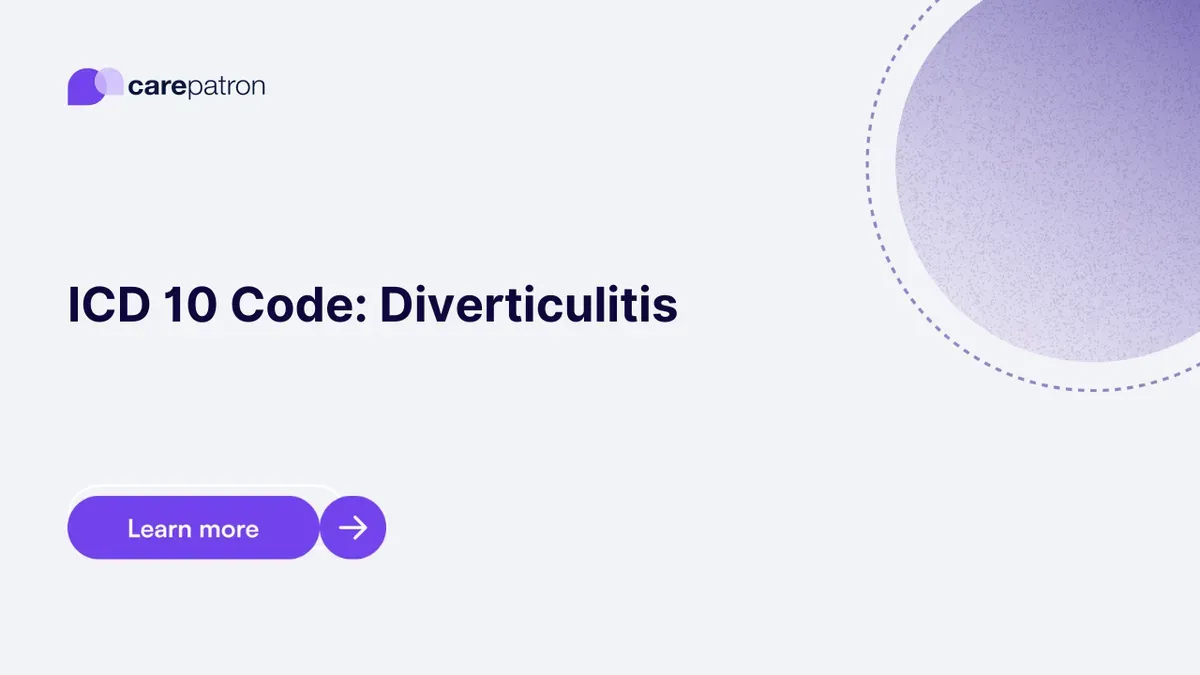
Diverticulitis ICD-10-CM Codes
Read this short guide and learn about diverticulitis ICD codes you can use.
Use Code
Commonly asked questions
Yes, but we don’t recommend using those because they are likely invalid.
A person with diverticulitis might develop gastrointestinal perforations and bleeding, blockages/obstructions in the intestinal tract, and fistulas.
Healthcare professionals will likely prescribe antibiotics. Acetaminophen is also recommended because it can deal with pain and reduces the risk of gastrointestinal bleeding. A liquid diet may also be recommended because solid food might aggravate diverticulitis.
EHR and practice management software
Get started for free
*No credit card required
Free
$0/usd
Unlimited clients
Telehealth
1GB of storage
Client portal text
Automated billing and online payments
